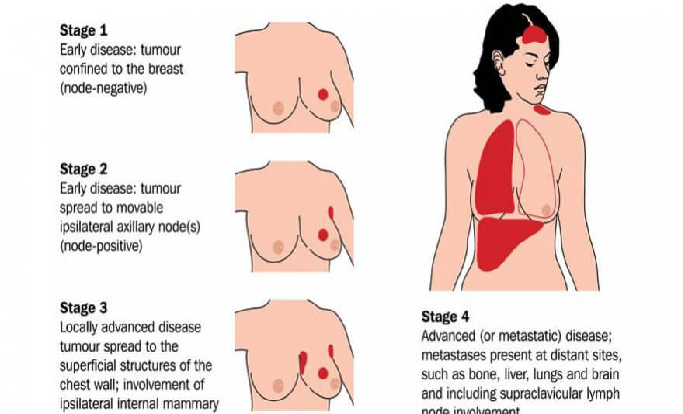
Anything that may maximize the chance of creating a disease is regarded a risk factor. As study has suggested women with certain risk factors are more likely than others to create breast cancer.
The actual reasons for breast cancer are not recognized. Often doctors cannot describe why one woman may build breast cancer but one more does not. What is recognized is that discoloration, bumping or in contact with the breast does not lead to cancer. Breast cancer is not infectious. It is not “caught” from others.
There have been researches that have exposed some of the risk elements for breast cancer. Between those risks aspects are a woman’s age, a family or personalized history of breast cancer, modifications in her breast, changes in her genes and her menstrual history. Other threat things for breast cancer consist of a woman’s kind, if she has had rays therapy to the chest, and her breast density. Still other things for breast cancer consist of getting diethylstilbestrol (DES), her being obese or over weight after change of life, not being actually active, and her alcohol usage.
Breast cancer is not popular in women before menopause. As women age their possibilities for breast cancer growth can raise. Breast cancer happening is increased for women above age 60.
The chance of a woman acquiring breast cancer is higher if her mother, sister or daughter has a record of the disorder. If a family member formulated breast cancer just before the age of 40, the risk is even higher for a woman creating breast cancer. Other family members having breast cancer, possibly on her mum to be or paternal side of the relatives, can also put a woman at higher threat for creating breast cancer.
Getting a personal history of breast cancer can also improve a woman’s threat. If a woman has got breast cancer in one breast the possibility of getting breast cancer in the other breast raise.
Changes in a woman’s breast can position a woman at danger for breast cancer. Cells in a woman’s breast may look unusual under microscopic lenses. Unconventional cells such as atypical hyperplasia and lobular carcinoma in situ (or LCIS) improve a woman’s possibility for breast cancer.
A woman’s menstrual and reproductive history can put a woman at possibility for breast cancer. Women getting their first monthly period before age 12 have a higher risk for creating breast cancer. The risk of breast cancer improves the older a woman is when she had her first child. A woman going through the menopause after age 55 places her at higher threat for breast cancer. If a woman has never had kids she is at a higher risk of breast cancer.
Rays therapy conducted to the chest, such as the breast, before a woman is age 30 is another known risk element for breast cancer. Research suggests the younger the age of a woman when she obtained rays treatment the greater the risk for breast cancer in afterward life.
A woman’s breast cells are possibly fatty or thick. Placing them at a higher risk of breast cancer is older ladies whose mammograms, or breast x-rays, show more thick tissue.
Diethylstilbestrol, also identified as DES, was provided to some expecting women in the United States throughout the 1940s till 1971. This is no longer given to pregnant women. Getting DES during pregnancy may a little bit enhance the threat for breast cancer. The possible effects on the daughters of women who were given DES while pregnant are still being analyzed.
A woman being overweight or obese after menopause can maximize a woman’s risk for creating breast cancer. Research has suggested that after menopause the threat improves for women who are obese.
A physically less active lifestyle may contribute to risks for breast cancer. If a woman is active it can avoid weight obtain and being overweight and therefore minimize possibilities for breast cancer.
Drinking alcohol improves risks for breast cancer. Research shows the much more alcohol woman beverages her risk for breast cancer improves.
